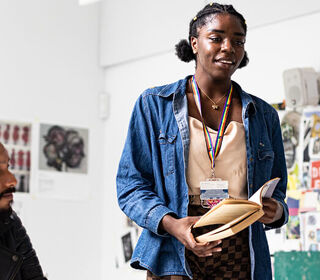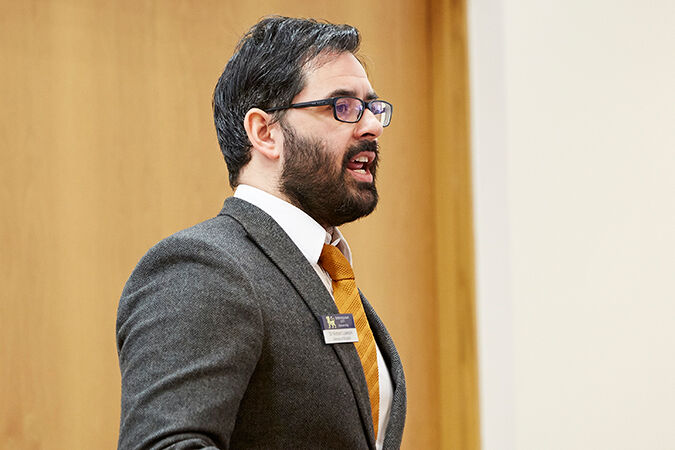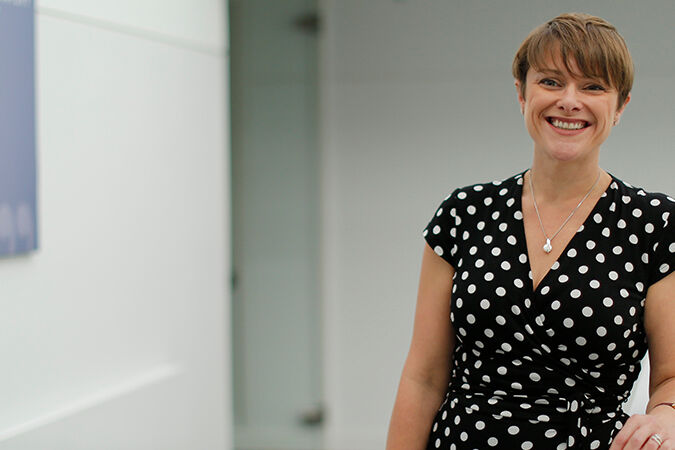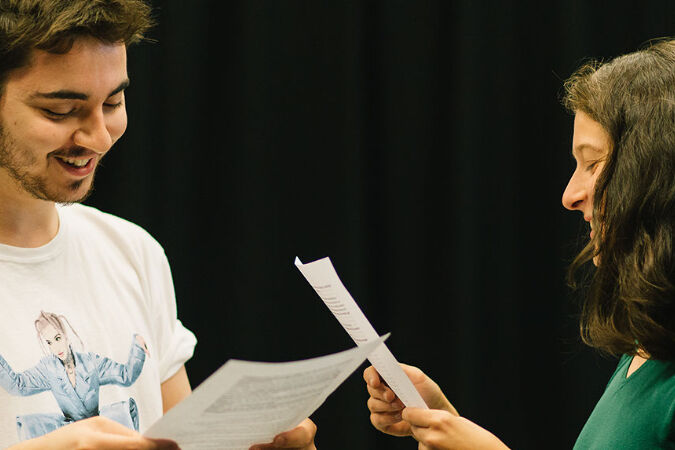
Blog

Dr Soudabeh Ananisarab is the Course Director of our Foundation English course. We caught up with her to find out more about what makes her course distinct, why Birmingham is a good place to study and what students can do to help prepare for the course...
Could you tell us about your experience and how this feeds into your course?
I am a Lecturer in Drama and I have been teaching at BCU on a wide range of modules for a number of years. I am familiar with our undergraduate programme and the specific needs of our students. In my role as Course Director, I have used this knowledge to ensure that the Foundation year fits well into the larger BA degree that we expect our Foundation students to ultimately complete. I think it is essential that Foundation students feel fully integrated into the larger student community at the School and my involvement with our BA programme is helping me to achieve this aim.
What is the philosophy of your course?
The philosophy of the Foundation course is to help students develop the skills and knowledge essential for succeeding in future degree level studies. This includes skills in research, critical analysis, planning and evaluation, creativity and effective communication. We consider the Foundation year as a springboard into degree level study and are fully dedicated to ensuring that our students have the best start possible.
If you had to name one thing about your course that makes it distinct, what would it be?
It would be our academics’ diverse range of expertise. In the School, we have respected academics and practitioners working in all areas of English studies – literature, drama, language and creative writing. As a result, we are able to offer a diverse range of modules to allow our students to tailor their studies to their individual interests and career aspirations.
Why is Birmingham a good place to study?
Birmingham is an incredibly exciting place to live and study. It is a vibrant and diverse city with great food, entertainment, shops and cultural activities. Our campus is only a short walk from the city centre and we encourage our students to make the most of all that Birmingham has to offer – for instance at the moment, all our students get free tickets to the Royal Birmingham Conservatoire’s fantastic acting shows! At BCU, we are also committed to contributing to the cultural life in Birmingham through links with local cultural institutions and agencies.
Why do you believe it’s important to study a degree and why might students want to study your course?
I think the importance of studying a degree is twofold and we look to combine the two in our English degrees at BCU. Firstly, it can improve your career prospects. You develop subject specific knowledge as well as transferrable skills that will open up new possibilities for you. Secondly, student life is also a great personal learning experience. You meet new people from all walks of life, introducing you to different life experiences. Challenging perspectives and thinking critically is also embedded in our course, as we teach our students to become independent thinkers. In addition to helping our students develop extensive subject knowledge, our modules also focus on specific transferrable skills. This focus on employability has enabled our graduates to adapt to a wide range of career paths and employment opportunities.
What can students do to help prepare them for their course?
Read, read and read! Students of English studies should read widely as this will help them develop key writing, close reading and researching skills. At the School of English, each module has a separate reading list to help students identify key texts in the subject area. Before arriving, students are given access to their semester one reading lists. I would say that is a really good place to start.
What’s your favourite element about working at the School of English?
The diversity of our student and staff communities is my favourite element. I work with and teach people from a diverse range of backgrounds and interests. I enjoy the range of perspectives and approaches that this can bring to our discussions of literary texts in seminars. I also always love hearing about the amazing research my colleagues are doing.




